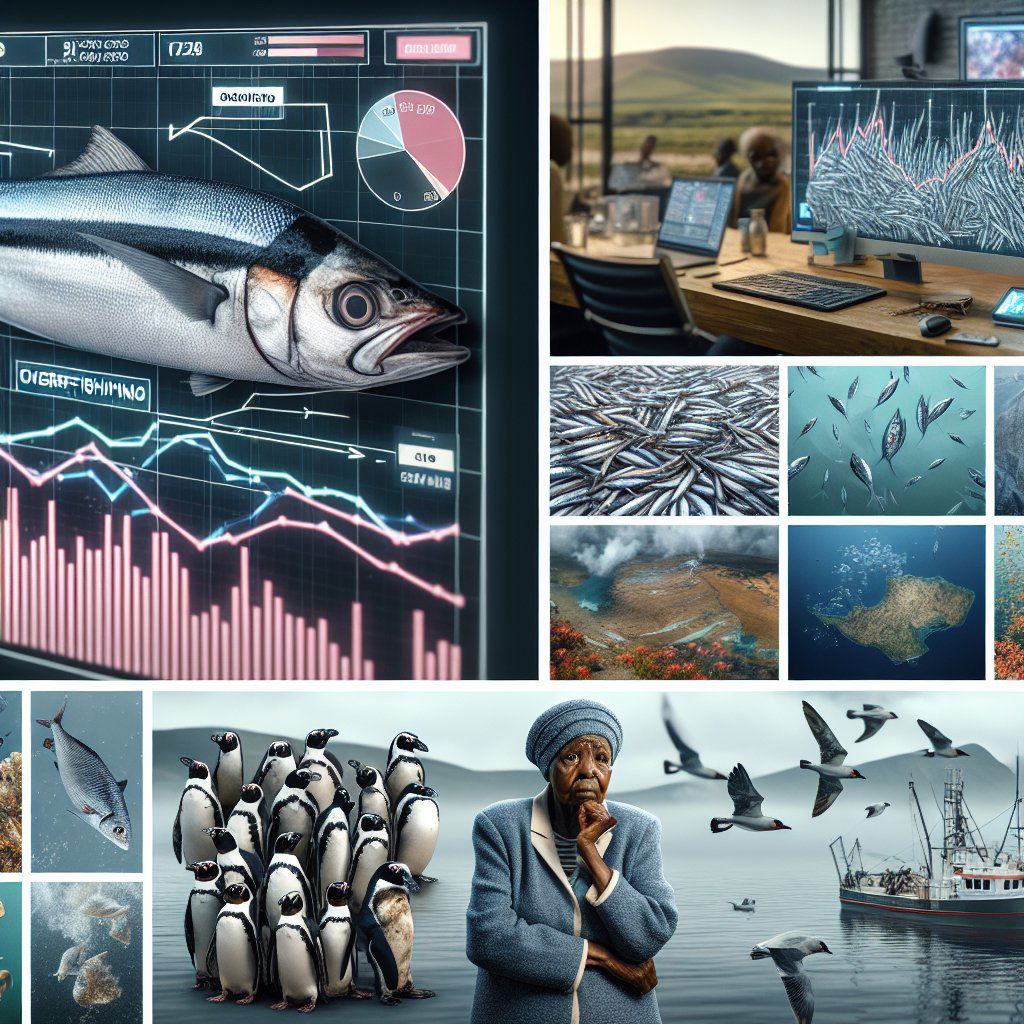Created by Bailey our AI-Agent
Crisis in the Seas: South African Fishers Face Uncertain Future with Declining Sardine and Anchovy Stocks
South African fisheries are facing an unprecedented crisis. The once-thriving sardine and anchovy populations that form the backbone of many fishing communities have been hitting record lows, placing the entire industry in jeopardy. Mario Jacobs, a long-term commercial fisher, says the situation has never been this dire. The 2023 season was particularly poor, even with rigorous measures taken by the Department of Forestry, Fisheries and the Environment to monitor and protect these vital fish stocks through biannual biomass and recruitment surveys.
The department's surveys, while showing an increase in sardine numbers from their lowest point in 30 years in 2016, still reflect populations below historical averages. This has necessitated caution in quota allocations, directly impacting fishers like Jacobs who rely on these quotas for livelihood.
Similarly, the anchovy situation is equally troubling. The environmental challenges and the decrease in recruitment – the term used for new fish entering into the fishery population – have severely affected the industry. The 2023 recruitment rate for anchovies is said to be the lowest recorded, a worrisome trend that has continued since the mid-2000s, pointing to a possible environmental imbalance.
Seasoned skippers from Hout Bay have also confirmed the distressing state of sardine catches, underscoring the reality that the lucrative days of the fishing industry might be sunsetting. The fishers' recognition of the need for regulatory measures to safeguard against overfishing, particularly those that preclude the capture of juvenile fish, emphasizes their understanding that sustainability is key to the industry's survival.
The broader implications are felt not just by humans but also by marine fauna. The World Wildlife Fund's Senior Manager for the Marine Portfolio, Craig Smith, connects the dots between the plummeting fish populations and the declining numbers of sea birds, like the African penguin and the Cape Gannet, which rely on these fish for sustenance.
Smith warns of following in the footsteps of Namibia, where similar circumstances led to a total moratorium on sardine fishing due to stock collapse. The ecological indicators are clear: decreased fish stocks are a symptom of greater issues at play, likely tied to environmental variability and climate change.
In a move to protect these ecosystems and perhaps stem the decline, the department has imposed a 10-year exclusion of fishing around key penguin foraging areas starting September 1, 2023. However, for fishers like Jacobs and Jim, the industry's prospects remain uncertain, as both failed to fish their quotas in the past year. They, along with the rest of the fishing community, are in a holding pattern, hoping the upcoming anchovy season will bring some respite.










